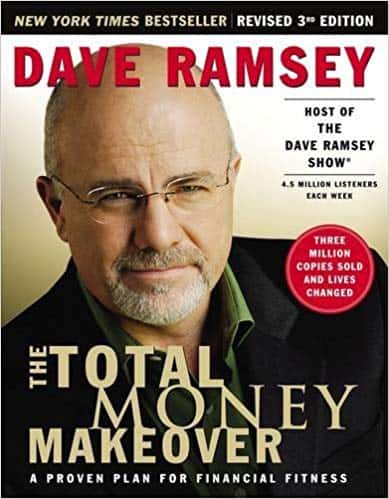Money management is a crucial skill that everyone should master. Unfortunately, many people find themselves buried in debt and struggling to make ends meet. If you’re someone who wants to turn their financial situation around and build wealth, then you’ve come to the right place.
This beginner’s guide to personal money management will equip you with the essential tools and strategies you need to take control of your finances and start building your wealth. From budgeting and saving to investing and credit management, we’ll explore everything you need to know to achieve financial freedom.
Whether you’re a recent graduate who’s just starting out or someone who’s been struggling with debt for years, this guide will help you take the first step towards a brighter financial future. So, let’s dive in and start your journey from debt to wealth!

The Total Money Makeover
by Dave Ramsey
⏱ 12 minutes reading time
🎧 Audio version available
The Importance of Personal Money Management
Managing your personal finances is important for several reasons. Firstly, it helps you to be in control of your money and make informed decisions about how you spend it. Secondly, it helps you to plan for the future and be prepared for unexpected expenses. Thirdly, it helps you to build wealth and achieve financial freedom. Personal money management is not just for people with high incomes; it’s for everyone who wants to take control of their finances and make their money work for them.
Effective personal money management begins with an understanding of your current financial situation. This includes taking stock of your income, expenses, assets, and debts. Once you have a clear picture of your finances, you can begin to develop a plan to achieve your financial goals.
This plan should include creating a budget, reducing debt, building savings, and investing for the future. Personal money management is a process, and it requires discipline, patience, and commitment. But the rewards are well worth the effort.
Understanding Debt and Its Impact on Finances
Debt is a fact of life for many people, but it can be a serious obstacle to achieving financial freedom. High levels of debt can make it difficult to save, invest, and build wealth. It can also lead to stress, anxiety, and other health problems. Understanding debt and its impact on your finances is the first step towards reducing it and achieving financial freedom.
There are several types of debt, including credit card debt, student loans, car loans, and mortgages. Each type of debt has its own terms and conditions, interest rates, and repayment schedules. It’s important to understand the terms of your debt and the impact it has on your finances. This includes understanding your credit score, which is a measure of your creditworthiness and is used by lenders to determine your eligibility for loans and credit cards.
Reducing debt begins with creating a plan to pay it off. This may involve consolidating high-interest debt into a lower-interest loan, negotiating with lenders to reduce interest rates, or developing a debt repayment plan. It’s important to prioritize debt repayment and to avoid taking on new debt while paying off existing debt. This may require making sacrifices in the short term, but it will pay off in the long term.
Steps to Take to Get Out of Debt
Getting out of debt requires a plan and a commitment to stick to it. Here are some steps you can take to get out of debt and start building your wealth:
- Take stock of your debt: Make a list of all your debts, including the amount owed, interest rates, and repayment schedules.
- Prioritize debt repayment: Focus on paying off high-interest debt first, such as credit card debt.
- Develop a debt repayment plan: This plan should include how much you will pay each month towards each debt and the order in which you will pay them off.
- Consolidate debt: Consider consolidating high-interest debt into a lower-interest loan to reduce overall interest payments.
- Negotiate with lenders: Talk to your lenders about reducing interest rates or changing repayment terms to make debt repayment more manageable.
- Avoid taking on new debt: While paying off existing debt, avoid taking on new debt, such as credit card debt or loans, that will add to your overall debt burden.
By following these steps, you can make progress toward reducing your debt and achieving financial freedom.
Building a Budget That Works for You
Creating a budget is a key part of personal money management. A budget helps you to track your income and expenses and make informed decisions about how to spend your money. Building a budget that works for you requires some planning and discipline, but the rewards are well worth the effort.
To create a budget, start by tracking your income and expenses over a period of time, such as a month. This will help you to understand your spending habits and identify areas where you can reduce expenses.
Next, create a list of your monthly expenses, including fixed expenses such as rent or mortgage payments, utilities, and car payments, as well as variable expenses such as groceries, entertainment, and dining out. Finally, subtract your expenses from your income to determine your disposable income.
Once you have a clear picture of your income and expenses, you can begin to make adjustments to your budget. This may involve reducing expenses in certain areas, such as dining out or entertainment, to free up more money for savings or debt repayment. It may also involve finding ways to increase your income, such as taking on a side hustle or negotiating a raise at work.
Building a budget that works for you requires discipline and commitment. It’s important to stick to your budget and avoid overspending in areas that are not essential. This may require making sacrifices in the short term, but it will pay off in the long term.
Saving for Emergencies and Future Goals
Saving is an important part of personal money management. It helps you to be prepared for unexpected expenses, such as car repairs or medical bills, and to achieve your future goals, such as buying a home or starting a business. Building a savings plan requires some planning and discipline, but the rewards are well worth the effort.
To start building your savings, begin by setting a savings goal. This may be a specific amount of money or a percentage of your income. Next, create a savings plan that includes setting aside a certain amount of money each month towards your savings goal. This may require making adjustments to your budget to free up more money for savings.
It’s important to have a separate savings account for emergencies and future goals. This account should be easily accessible but separate from your regular checking account. This will help you to avoid dipping into your savings for non-essential expenses.
Building your savings requires discipline and commitment. It’s important to stick to your savings plan and avoid dipping into your savings for non-essential expenses. This may require making sacrifices in the short term, but it will pay off in the long term.
Investing in Your Financial Future
Investing is an important part of personal money management. It helps you to build wealth and achieve your financial goals. Investing requires some knowledge and discipline, but the rewards are well worth the effort.
To start investing, begin by understanding the different types of investments available, such as stocks, bonds, mutual funds, and real estate. Each type of investment has its own risks and rewards, so it’s important to do your research and understand the risks before investing.
Next, develop an investment plan that is aligned with your financial goals and risk tolerance. This may involve working with a financial advisor or investment professional to develop a plan that meets your needs.
It’s important to have a long-term perspective when investing. Investing involves risks, and there will be ups and downs in the market. But over the long term, investing can help you to build wealth and achieve your financial goals.
Tips for Staying on Track with Your Finances
Staying on track with your finances requires discipline and commitment. Here are some tips to help you stay on track:
- Stick to your budget: Avoid overspending in areas that are not essential and stick to your budget.
- Automate your savings: Set up automatic transfers from your checking account to your savings account to make saving easier.
- Monitor your credit score: Check your credit score regularly and take steps to improve it if necessary.
- Avoid new debt: While paying off existing debt, avoid taking on new debt that will add to your overall debt burden.
- Review your investments: Regularly review your investments to ensure they are aligned with your financial goals and risk tolerance.
By following these tips, you can stay on track with your finances and make progress towards achieving financial freedom.
Resources for Personal Money Management
There are many resources available to help you manage your personal finances. Here are some resources to consider:
- Financial advisors: Financial advisors can help you develop a personalized financial plan and provide guidance on investments and other financial matters.
- Budgeting apps: There are many budgeting apps available that can help you track your income and expenses and stick to your budget.
- Credit counseling services: Credit counseling services can help you manage debt and improve your credit score.
- Online resources: There are many online resources available, such as blogs, podcasts, and websites, that provide information and advice on personal money management.
By utilizing these resources, you can improve your personal money management skills and make progress toward achieving financial freedom.
Related: How to Use the Debt Snowball Method to Pay Off Debt
Conclusion
Personal money management is an important skill that everyone should master. It helps you to be in control of your money, plan for the future, and achieve financial freedom. This beginner’s guide to personal money management has provided you with the essential tools and strategies you need to take control of your finances and start building your wealth.
From reducing debt and building a budget to saving for emergencies and investing for the future, these strategies can help you achieve your financial goals. By committing to the process and staying on track, you can turn your financial situation around and achieve the financial freedom you deserve.
Start Your Snapreads Free Trial

What Is Snapreads?
With the Snapreads app, you get the key insights from the best nonfiction books in minutes, not hours or days. Our experts transform these books into quick, memorable, easy-to-understand insights you can read when you have the time or listen to them on the go.


